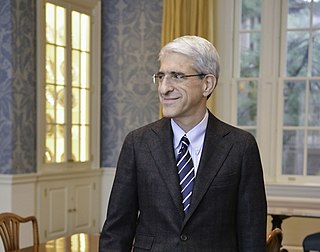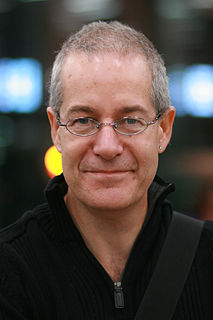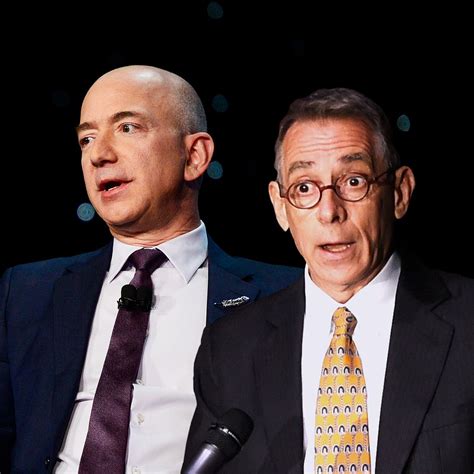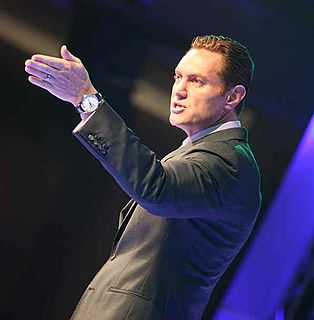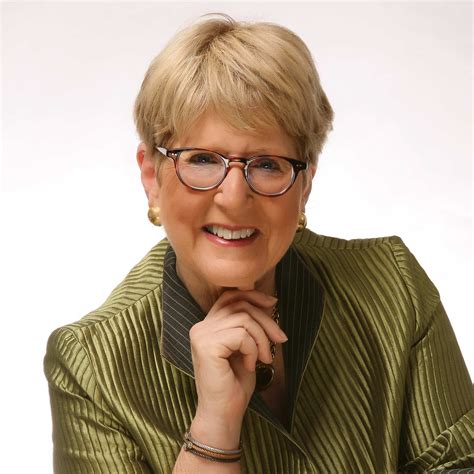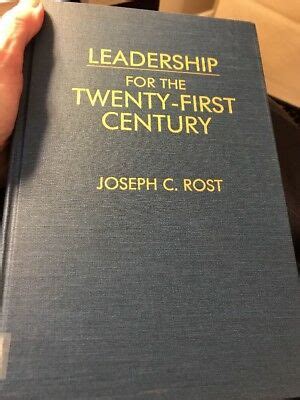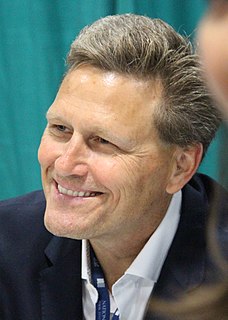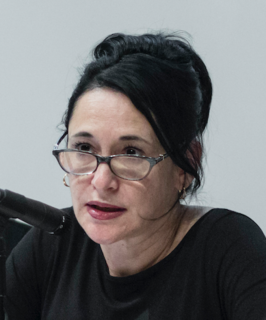Top 484 Outcomes Quotes & Sayings - Page 8
Explore popular Outcomes quotes.
Last updated on April 19, 2025.
My advice is if we can't replace Obamacare by ourselves, to go to the Democrats and say this. 10% of the sick people in this country drive 90 percent of the cost for all of us. Let's take those 10 percent of really sick people, put them in a federal managed care system so they'll get better outcomes, and save the private sector market if we can't do this by ourselves. That's a good place to start.
Once we admit that there is room for newness - that there are vastly more conceivable possibilities than realized outcomes - we must confront the fact that there is no special logic behind the world we inhabit, no particular justification for why things are the way they are. Any number of arbitrarily small perturbations along the way could have made the world as we know it turn out very differently.
Letting go means we stop trying to force outcomes and make people behave. It means we give up resistance to the way things are, for the moment. It means we stop trying to do the impossible-controlling that which we cannot-and instead, focus on what is possible-which usually means taking care of ourselves. And we do this in gentleness, kindness, and love, as much as possible.
I think in the coming decade we will see well-conducted research demonstrating that emotional skills and competencies predict positive outcomes at home with one's family, in school, and at work. The real challenge is to show that emotional intelligence matters over-and-above psychological constructs that have been measured for decades like personality and IQ. I believe that emotional intelligence holds this promise.
"Fate permitting" is a standard Stoic phrase meant to remind ourselves that planning things is up to us, but the ultimate outcomes are not under our control. It helps us to develop an attitude of equanimity toward the universe. We should very much try to change things for the better, that's the whole point of the Stoic discipline of action.
I detach myself from preconceived outcomes and trust that all is well. Being myself allows the wholeness of my unique magnificience to draw me in those directions most beneficial to me and to all others. This is really the only thing I have to do. And within that framework, everything that is truly mine comes into my life effortlessly, in the most magical and unexpected ways imaginable, demonstrating every day the power and love of who I truly am.
People are offering competing visions of what happened in the past. And the justice system is willing to accept either of those competing visions and to impose consequences as a result. When you think of it that way, it's a little bit startling, because we want to believe that there is one truth and, therefore, one justice, whereas, if you have practiced law as long as I have, you realize that there is actually a range of acceptable outcomes.
Size will hurt returns. Look at Berkshire Hathaway - the last five things Warren has done have generated returns that are splendid by historical standards, but now give him $100 billion in assets and measure outcomes across all of it, it doesn't look so good. We can only buy big positions, and the only time we can get big positions is during a horrible period of decline or stasis. That really doesn't happen very often.
Democrats believed in "progressivism." They believed in Big Government. But they at least attached optimistic outcomes to it. They really believed they were helping America. They really believed they were helping families, helping people. Now they've just become, "The country's horrible, it's rotten, it needs to be reformed!" The liberals of John F. Kennedy's day did not think there was anything really major wrong with this country.
We can go for days, weeks, and even months without saying or thinking the word 'education.' And yet, day in and day out, we are educating others and being educated ourselves. In the narrower sense of education - those classrooms and buildings and campuses where teachers and taught are brought together for purposes stated and unstated, for outcomes intended and unintended - we have all been profoundly affected by the pattern of days essentially not of our own making.
The Four Keys of Great Managers: When selecting someone, they select for talent ... not simply experience, intelligence or determination. When setting expectations, they define the right outcomes ... not the right steps. When motivating someone, they focus on strengths ... not on weaknesses. and When developing someone, they help him find the right fit ... not simply the next rung on the ladder.
Another simple and powerful way to dissolve problems is not to dwell upon the outcome of your actions. Instead, learn to value each action (no matter how small or large), to do it with complete attention. Your joy and satisfaction comes from doing each action with a whole heart and mind. Results and consequences then take care of themselves. When you are not absorbed by concern for outcomes, how much anxiety can you ever have?
The production of knowledge in schools today is instrumental, wedded to objective outcomes, privatized, and is largely geared to produce consuming subjects. The organizational structures that make such knowledge possible enact serious costs on any viable notion of critical education and critical pedagogy. Teachers are deskilled, largely reduced to teaching for the test, business culture organizes the governance structures of schooling, knowledge is viewed as a commodity, and students are treated reductively as both consumers and workers.
When dreaded outcomes are actually imminent we don't worry about themwe take action. Seeing lava from the local volcano make its way down the street toward our house does not cause worry it causes running. Also we don't usually choose imminent events as subjects for our worrying and thus emerges an ironic truth: Often the very fact that you are worrying about something means that it isn't likely to happen.
To be cheerful when others are in despair, to keep the faith when others falter, to be true even when we feel forsaken—all of these are deeply desired outcomes during the deliberate, divine tutorials which God gives to us—because He loves us. These learning experiences must not be misread as divine indifference. Instead, such tutorials are a part of the divine unfolding.
We have two choices when things pile up at work or we're surrounded by energy vampires who leave us feeling depleted. We can get frantic, hyperventilate, shut down, and become reactive. Needless to say, these responses to stress just make us more stressed. Surrendered people have the ability to pause, take a deep breath, and observe. Sustaining silence and circumspection are two behaviors that lead to better, healthier outcomes.
There are few things more bizarre than watching people advocate that another country be bombed even while acknowledging that it will achieve no good outcomes other than safeguarding the 'credibility' of those doing the bombing. Relatedly, it's hard to imagine a more potent sign of a weak, declining empire than having one's national 'credibility' depend upon periodically bombing other countries.
At the core of an analytical edge is an ability to systematically distinguish between fundamentals and expectations. Fundamentals are a well thought out distribution of outcomes, and expectations are what's priced into an asset. A power metaphor is the [pari-mutuel] racetrack. The fundamentals are how fast a given horse will run and the expectations are the odds on the tote board. As any serious handicapper knows, you make money only by finding a mispricing between the performance of the horse and the odds. There are no 'good' or 'bad' horses, just correctly or incorrectly priced ones.
Privilege exists when one group has something of value that is denied to others simply because of the groups they belong to, rather than because of anything they’ve done or failed to do. Access to privilege doesn’t determine one’s outcomes, but it is definitely an asset that makes it more likely that whatever talent, ability, and aspirations a person with privilege has will result in something positive for them.
I'm with the president nearly every day. We engage in complex conversations about some of the most weighty matters facing the world. I deliver to him this exquisite product that's been developed by my officers. He engages in a way that shows his understanding of the complexity. He asks really hard questions. He delivers policy outcomes based on the information that we provide him. My observation of the president is that, we deal in serious matters.
I do not mean to say that such institutions act unilaterally on psychic life, or that they determine certain psychic outcomes. Rather, they exploit forms of fear and insecurity that are there for any population - no political organisation of life could ever fully do away with fear and insecurity; but some work to intensify, accelerate, and make more acute forms of fear, and to provide ideological focus for such intensified fears, at which point critical thinking has a fierce rival. The critical analysis that shows precisely how those forms of fear are promulgated, and for what purpose.
We can all make powerful choices. We can all take back control by not blaming chance, fate, or anyone else for our outcomes. It’s within our ability to cause everything to change. Rather than letting past hurtful experiences sap our energy and sabotage our success, we can use them to fuel positive, constructive change.
Government planning not only fails; it tends to produce outcomes that are the opposite of what its proponents say that they favor. The only stable and productive social system is one that embraces human liberty in its totality, and defends the market economy, private property, sound money, and peaceful international relations, while opposing government intervention as economically and socially destructive.
With recidivism algorithms, for example, I worry about racist outcomes. With personality tests [for hiring], I worry about filtering out people with mental health problems from jobs. And with a teacher value-added model algorithm [used in New York City to score teachers], I worry literally that it's not meaningful. That it's almost a random number generator.
How can a novelist achieve atonement when, with her absolute power of deciding outcomes, she is also God? There is no one, no entity or higher form that she can appeal to, or be reconciled with, or that can forgive her. There is nothing outside her. In her imagination she has set the limits and the terms. No atonement for God, or novelists, even if they are atheists. It was always an impossible task, and that was precisely the point. The attempt was all.
Online education, then, can serve two goals. For students lucky enough to have access to great teachers, blended learning can mean even better outcomes at the same or lower cost. And for the millions here and abroad who lack access to good, in-person education, online learning can open doors that would otherwise remain closed.
The modern joint stock firm is the outcome of innumerable decisions made by individual entrepreneurs, owners and managers. For these decision makers the choices among alternatives were limited and the outcomes uncertain, but almost always there were choices. Despite the variability of these individual decisions, taken cumulatively they produced clear patterns of institutional change
People would be a lot more skeptical if they understood that there is an incredible amount of chance in the results that you observe for active managers. So the distribution of outcomes is enormously wide - but that's exactly what you'd expect by chance with lots of active managers who hold imperfectly diversified portfolios. The really good portfolios contain a lot of really lucky picks, and the really bad portfolios contain a lot of really unlucky picks as well as some really bad ones.
We can assume that most people, most of the time, are moral creatures. But imagine that this morality is like a gearshift that at times gets pushed into neutral. When that happens, morality is disengaged. If the car happens to be on an incline, car and driver move precipitously downhill. It is then the nature of the circumstances that determines outcomes, not the driver's skills or intentions.
We all travel different roads to our ultimate destinations. For some of us the path is rockier than for others. But no one reaches the end without feeling some form of adversity. So rather than fight it, why not accept it as the way of life? Why not detach yourself from the outcomes and simply experience every circumstance that enters your life to the fullest?
Economic systems work better when there's an extreme reliability ethos. And the traditional way to get a reliability ethos, at least in past generations in America, was through religion. The religions instilled guilt. ... And this guilt, derived from religion, has been a huge driver of a reliability ethos, which has been very helpful to economic outcomes for man.
Millions of mutual-fund investors sleep well at night, serene in the belief that superior outcomes result from pooling funds with like-minded investors and engaging high-quality investment managers to provide professional insight. The conventional wisdom ends up hopelessly unwise, as evidence shows an overwhelming rate of failure by mutual funds to deliver on promises.
Prepare for every negotiation... 1) Focus on Outcomes. What is it that you want to walk away with? Being as specific as possible also increases the likelihood of negotiation success. 2) Support your desired outcome with data that points to its reasonableness. 3) Writing down your key points in advance - and practicing them - enables you to stay focused on what's most important and avoid going off on tangents. 4) Err on the side of asking for more, rather than less [of what you really want]. 5) Be willing to walk away.
People worry that if they buy an annuity and then die before the policy starts to pay off, their heirs will lose out. I tell them, "What you should be more worried about is if you outlive your money, you will have to move in with your kids. Ask your kids which of these outcomes they are more worried about."
We should do an Adorno reading on Skrillex and vodka sales in Vegas. It's definitely interesting. What's interesting in that music for me is the harmonic density in some crazy melodic line that sounds like some Michael Bay film eating itself. Which I enjoy in the same way I'll watch a cracked up Hollywood movie. Yet rhythmically, I guess that music just funnels more into predictable cash outcomes.
I mean, if it's worth a cover story that men and women are born different, what in the world must you believe and who got you to believe it?And I'm telling you: It's feminism and liberalism and all these things that seek to make everybody the same, to make everybody "equal," to have equal outcomes, make sure nobody's offended or humiliated, and to make sure nobody's really that much better than anybody else 'cause it isn't fair all these differences.
In The Federalist, James Madison called the rage for equality 'a wicked project.' People differ and rewards differ-that's the essence of both liberty and justice. No nation that rewards effort, talent, inventiveness and luck can even pretend to cherish equal outcomes. In an inventive and dynamic society, equal (even relatively equal) incomes can be achieved only by abandoning liberty for tyranny.
However, there is a fundamental difference between the issue related to Japan's history and our negotiations with China. What is it all about? The Japanese issue resulted from World War II and is stipulated in the international instruments on the outcomes of World War II, while our discussions on border issues with our Chinese counterparts have nothing to do with World War II or any other military conflicts. This is the first, or rather, I should say, the second point.
The process is really what you have to do day in and day out to be successful, we try to define the standard that we want everybody to sort of work toward, adhere to, and do it on a consistent basis. And the things that I talked about before, being responsible for your own self-determination, having a positive attitude, having great work ethic, having discipline to be able to execute on a consistent basis, whatever it is you're trying to do, those are the things that we try to focus on, and we don't try to focus as much on the outcomes as we do on being all that you can be.
Leadership is the name that people use to make sense out of complex events and the outcomes of events they otherwise would not be able to explain. In other words, people attribute leadership to certain individuals who are called leaders because people want to believe that leaders cause things to happen rather than have to explain causality by understanding complex social forces or analyzing the dynamic interaction among people, events, and environment.
Leaders cannot work in a vacuum. They may take on larger, seemingly more important roles in an organization, but this does not exclude them from asking for and using feedback. In fact, a leader arguably needs feedback more so than anyone else. It's what helps a leader respond appropriately to events in pursuit of successful outcomes.
As a lawyer, as a private citizen, you see a lot of injustice. You see a lot of people who should have been punished and are not, and people who were punished wrongfully are not vindicated. Fiction is sort of a way to set the record straight, and let people at least believe that justice can be achieved and the right outcomes can occur.
There are times where I'd say the Oval Office, you use to gather the facts. The decisions you probably make late at night, or at least I do. But there are some times where you think you've made a decision, but during that walk, where you're announcing the decision, you've just got to make sure that, you're prepared to live with it, because as you know George, a lot of these decisions are not - the outcomes are uncertain.
In the philanthropy game, you're going for different outcomes: saving childhood lives, having kids grow up - because they don't have malnutrition or disease - that they achieve their full potential. We take for Warren [Buffett] things that, because he's very intelligent about the world but doesn't get to go out in Africa and see what we see, we've taken and say to him where we stand and it's basically a very positive report that his gift has made a phenomenal difference.
If optimism is important, it's because many outcomes are determined by how much of it we bring to the task. It is an important ingredient of success. This flies in the face of the elite view that talent is the primary requirement of a good life, but in many cases the difference between success and failure is determined by nothing more than our sense of what is possible and the energy we can muster to convince others of our due. We might be doomed not by a lack of skill, but by an absence of hope!
I've always viewed the Paris Agreement as a starting point. If you look at all the commitments that have been made by all the countries, it's still not sufficient to deal with the very dangerous situation we face. What it has done is that it created an architecture whereby as technology improves, as we find new clean sources of energy, as we make our economies more efficient, then gradually we can turn up the dial and improve the outcomes of Paris.
Thinking in terms of risk certainly has its unsettling aspects (...), but it is also a means of seeking to stabilise outcomes, a mode of colonising the future. The more or less constant, profound and rapid momentum of change characteristic of modern institutions, coupled with structured reflexivity, mean that on the level of everyday practice as well as philosophical [Seitenwechsel] interpretation, nothing can be taken for granted. What is acceptable/appropriate/recommended behaviour today may be seen differently tomorrow in the light of altered circumstances or incoming knowledge-claims.
In the financial markets, however, the connection between a marketable security and the underlying business is not as clear-cut. For investors in a marketable security the gain or loss associated with the various outcomes is not totally inherent in the underlying business; it also depends on the price paid, which is established by the marketplace. The view that risk is dependent on both the nature of investments and on their market price is very different from that described by beta.
A Machine to Make a Future is an insightful and creative contribution to the literature--both scholarly and journalistic--on contemporary genomics. By 'experimenting' with narrative genre, the authors hope to generate different insights into the world of genomics and biotechnology than ones generally presented in existing accounts. They succeed at that goal, providing an account that is ethnographically rich and analytically open to a world whose structure, implications, and outcomes are very much in the making.
Now it is worth noticing two things about the private substitutes that I have described. The first is that in the aggregate they are probably much more expensive than would be the implementation of the appropriate public policy. The second is that they are extremely poor replacements for the missing outcomes of good public policy. Nevertheless, it is plain that the members of a society can become so alienated from one another, so mistrustful of any form of collective action, that they prefer to go it alone.
That's the dream scenario: when people approach these stressful situations not focused on that concrete outcome but just focused on being there and being themselves and enjoying connecting with people. You're not going to be present all the time, but if you can figure out how to connect with yourself and bring that self forth in those moments, you will probably be feeling a lot better over time, and it's likely that even though you're not focused on the outcome, the outcomes will be better.
Appreciation is not an otherworldly or good treat which we may take or push away as per the minute's impulses, and in either case without material outcomes. Appreciation is the very bread and meat of profound and good wellbeing, separately and all things considered. What was the seed of deterioration that tainted the antiquated's heart world past the purpose of perfect remedy...? What was it however selfishness?
Hope is not attached to outcomes but is a state of mind, as Vaclav Havel says, "an orientation of the spirit." And I have faith; maybe more than hope, I have faith. I think of my great-grandmother, Vilate Lee Romney, who came from good pioneer Mormon stock. She always said to us that faith without works is dead, so I think if we have hope, we must work to further that hope. Maybe that is the most important thing of all, to have our faith rooted in action.
A keystone habit leads to other positive habits and disciplines. These positive traits start a chain reaction that produces other positive outcomes. The presence of these important habits help you become more faithful in other areas of your life. On the other hand, the absence of these key disciplines can impact you negatively.
Our society and our organizations have learned to value masculine, 'quick-fix' traits in leaders. In a primitive society, a rural society, or even the industrial society of the early 1990s, quick fixes worked out all right. But they are less likely to work in a complex society. We need to look at long-range outcomes now. Service and patience are what can keep things running effectively today and women can contribute a lot in both of these areas.




